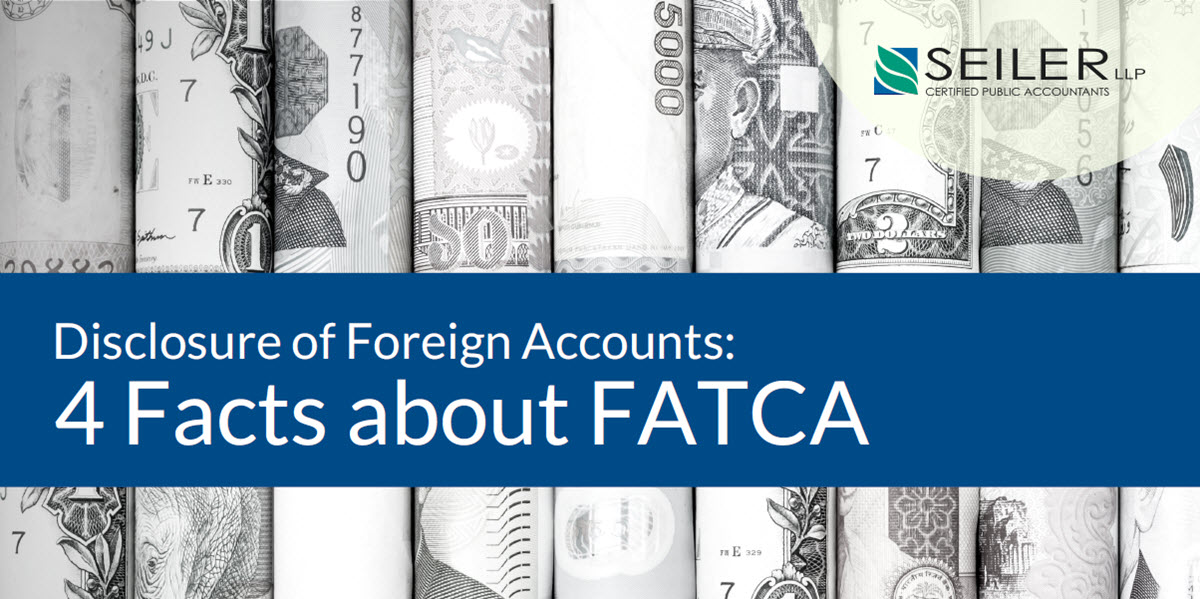Disclosure of Foreign Accounts: 4 Facts about FATCA

The Foreign Account Tax Compliance Act (FATCA) requires certain U.S. taxpayers who have interests in “specified foreign financial assets” to provide information to the IRS. This article offers four facts for individuals about FATCA, such as which assets need to be reported and who might be exempt from the law’s requirements.
If you hold assets such as bank and other financial accounts or securities from companies outside the United States, you may need to report them to the IRS. The Foreign Account Tax Compliance Act (FATCA) requires certain U.S. taxpayers who have interests in “specified foreign financial assets” (SFFAs) to provide information via Form 8938, “Statement of Specified Foreign Financial Assets.” Here are four important facts about FATCA:
1. SFFAs are indeed specific. Among the assets the IRS considers SFFAs are foreign financial accounts and instruments, as well as foreign stocks and securities. But some types of foreign assets don’t need to be reported. These include financial accounts maintained by U.S. payers, such as the U.S. branches of foreign financial institutions or the foreign branches of U.S. financial institutions.
2. The penalties for failing to report are steep. They start with a $10,000 failure-to-file penalty. An additional penalty of up to $50,000 can be imposed if you continue to not report after being notified by the IRS. The statute of limitations may remain open for all or a part of your income tax return until three years after the date on which you file Form 8938. Or it may be extended to six years if you don’t include gross income of more than $5,000 from one or more SFFAs on your tax return.
3. Not everyone with foreign financial assets needs to report. If you aren’t required to file a U.S. income tax return for the year, you don’t need to file Form 8938. Even if you are required to file a return, Form 8938 isn’t required unless:
- You’re a single filer or file separately from your spouse and held SFFAs of more than $50,000 on the last day of the tax year or more than $75,000 at any time during the tax year, or
- You’re married and file jointly and held SFFAs of more than $100,000 on the last day of the tax year, or more than $150,000 at any time during the year.*
4. It’s complicated. If you hold financial assets outside the United States, it’s worth reviewing them to determine whether you’re subject to the FATCA reporting requirements. But don’t expect this to be a simple task; the law is complex. We can help you to account for all of your foreign assets and determine whether you need to file Form 8938.
As always, if you have any questions about how this might affect you, please contact your tax advisor.
*The thresholds are higher for U.S. taxpayers living outside the United States. Other details, exceptions and restrictions may apply.